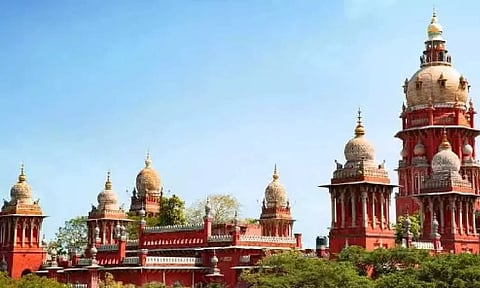

CHENNAI: The Madras High Court (MHC) confirmed the life sentence to a son who cruelly murdered his father for not having arranged a marriage for him.
A life sentence convict Saravanan from Chennai moved the MHC seeking to set aside the sentence imposed by an additional sessions judge.
The case was listed before a division bench comprising Justice R Suresh Kumar and Justice K Kumaresh Babu.
Additional Public Prosecutor R Muniyapparaj contended that the accused and his father (deceased) were not on good terms as the later had not taken any steps to arrange a marriage to the accused. He also submitted the confession statement, corroborated with the evidence of the various witnesses who had witnessed the incident and said that proved the guilt beyond any reasonable doubt and therefore no interference is required to be made on the conviction.
The counsel for the accused submitted that the convict, being the son of the victim, would have no motive to murder his father. Even assuming that the circumstantial evidence leads to the accused having committed the offense it could only be a knee-jerk reaction therefore he could be punished for an offense punishable under Section 304 (II) of IPC (murder without any intention), said the counsel.
After the submission the bench wrote the injuries that had been noted during the post-mortem would suggest that the incident could not have occurred on a sudden provocation. The accused seems to have indiscriminately attacked the deceased and had slit his throat and thereafter severed the genital of the deceased, this cannot be a knee-jerk reaction as claimed by the accused, read the judgment. Hence the bench found the accused guilty under Section 302 of IPC and confirmed the life sentence imposed by a lower court.